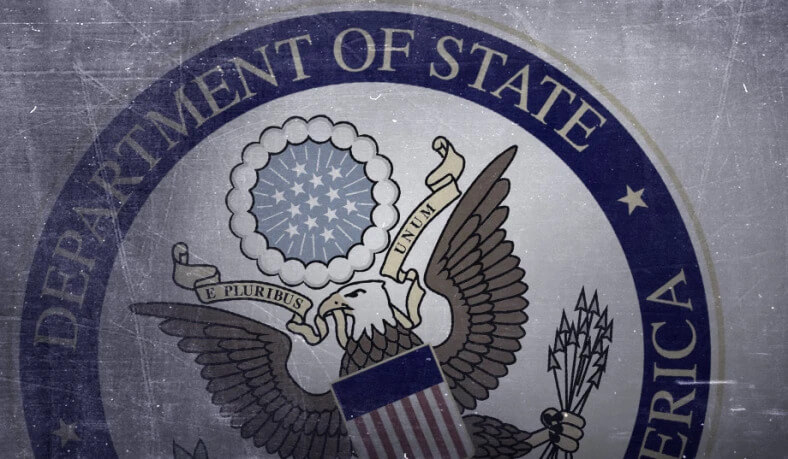1. Minimal Understanding of History and Civics
One of the reasons high school and college Americans lack foreign policy knowledge is because they lack a basic understanding of United States civics and history. By not understanding the branches of government and how the President and his administration apply foreign policy on the world stage and the role Congress has in ratifying international treaties and providing assistance to allies, has led many young Americans to have a lack of appreciation for America's presence on the world stage and have a minimized view of foreign policy. According to a 2014 National Assessment of Education Progress report, three-quarters of eighth graders tested below proficient in geography, as a result of teachers and professors spending less time on the subject. Not only do young Americans not know the names of past presidents, but they are also unable to identify world leaders, the governing makeup of foreign nations, and rogue regimes like Iran, China, and Russia. Some young Americans believe that international events outside the country's borders do not directly impact their lives, adopting an isolationist viewpoint.
2. Left-Wing Takeover in America's Schools
Many high school and college-level Americans studying American foreign policy encounter a left-wing curriculum with a lopsided view of US foreign policy seeking to blame the US and the West for creating problems on the world stage. According to these teachers, foreign policy issues ranging from environmental crises, energy, wars, and global economic problems are blamed on the "oppressive" and "imperialistic" America and Western society at large. This phenomenon can be traced back to the 1960s and 1970s, where left-leaning college professors and student activists taught popularized the sentiment that the US was evil toward the Soviet Union during the Cold War. Following 9/11 and the invasions of Iraq and Afghanistan, many academics continued with their one-sided views on Islamic terrorism, blaming the US and the West for intervention in the Middle East. Today, public education systems continue with woke-progressive ideologies in this critical field of study.
3. Social Media
With the creation of social media outlets like Facebook, Snapchat, Instagram, and Twitter, high school and college-age Americans spend a significant amount online, obtaining their news from left-leaning influencers and online media outlets. Today, the average user spends 2 hours and 31 minutes daily on social media for texting with friends and family members and for entertainment while not using their devices to engage in serious research of international events. Whenever major foreign policy events occur, like terrorist attacks against Israel from Hamas and Palestinian terrorists, China's influence on social media apps like TikTok, and the COVID-19 pandemic, many young Americans take their cues from influencers who provide left-wing talking points through their post stories, videos, and tweets. As Congress looks to initiate a national TikTok ban in America, many young Americans are rallying behind the Chinese-sponsored app, not taking the time to understand the danger of having the CCP's influence on their phones. Following the terrorist attacks in Sheikh Jarrah attack several years ago by Palestinian Islamic terrorists against Israelis, many influencers and young Americans posted in solidarity with Palestinian terrorists and condemned Israel, obtaining their information from selectively edited clips and photographs instead of taking the time to understand the full context.
4. More Concerned for Domestic Issues
Whenever the issue of foreign policy comes up for all Americans, most will put domestic issues ahead of foreign policy issues. With the current state of the economy, rapid inflation, energy concerns, and social issues being at the forefront, foreign policy concerns are at the bottom of the list. While some might say they are concerned about the Russian-Ukraine war and conflict with China, many young Americans are concerned about the potential recession and the issues plaguing daily lives. As a result, both political parties have developed isolationist tendencies, focusing only on the domestic concerns that have significant divides in the US and not emphasizing America's role on the world stage. Many Americans today will spend hours on entertainment and social media debating social issues but do not have an appreciation for the vital role that American leadership has played on the world stage.
5. Wokeification of Foreign Policy
With leftists leading the conversation for decades on foreign policy, a ‘woke’ ideology has pervaded most places of education. America's foreign policy now pivots around "equity" "inclusion" "diversity" and not on how America defends its interests from rogue regimes like China, Russia, and Iran. When learning about past and current US foreign policy, high school and college students are presented with a biased version of history. Instead of learning why the US has alliances with Saudi Arabia and other regimes necessary to defend our interests, many push woke viewpoints related to LGBTQ rights in this area of study, leading to the deterioration of relations with allies. Instead of educating young individuals on the dangers of rogue regimes and conflicts, organizations like the United Nations have put more effort into woke-centered issues as a foreign policy crisis that deserves the most attention. During the Cold War, individuals fleeing Communism viewed America as a beacon of hope spreading freedom, liberty, and democracy against the Soviet Union. Today however, the failure to reflect on history and the long-term effects that woke ideology will have on America's status on the world stage has led allies to turn from the US to regimes like China, Iran, and Russia.
Related Story: New Study Finds American National Security Innovation Workforce Impacted by Lack of Education and Expertise









